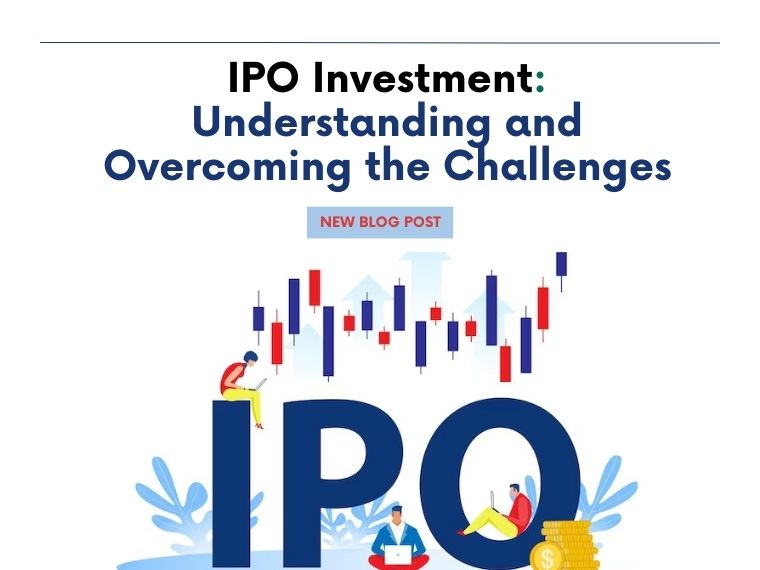Financing is the single-most important thing for any business wanting to grow. There are several ways to obtain capital for a business. Initial Public Offering or IPOs, are used by many companies. It refers to the process through which a private company offers its stock/share to the common people investing in the stock market. Owning a stake in the company is similar to owning a portion of it.
IPO investments have always been a popular investment option for retail investors. IPOs can be an attractive investment opportunity with the promise of high returns if done well. However, investing in IPOs comes with its own challenges. People often face hurdles when it comes to buying IPO shares. Understanding these challenges in detail is essential to making informed investment decisions. So, let’s delve deeper into the same.
Major Challenges in Buying IPO Shares
Buying an IPO share of a reputed company is no less than buying a lottery ticket because there’s tremendous upside potential. However, there are some significant challenges to purchasing an IPO share. Let’s quickly look at these challenges and learn how to overcome them.
- Share Allocation
Share allocation refers to the allotment of shares to different investors who have subscribed for an IPO. One of the significant challenges that retail investors face while investing in IPOs is the allocation of shares. In most cases, IPOs are oversubscribed, meaning that the demand for shares is much higher than the supply in the market. As a result, retail investors may not get the desired allocation of shares. In some circumstances, investors may not get any shares at all.
Overcoming this challenge requires learning about the IPO allocation process. When a company goes public, it appoints investment banks to underwrite the IPO. The allocation of shares is done based on various factors, such as the demand for shares, the size of the investment, and the client’s relationship with the investment bank. Retail investors who want to increase their chances of getting the desired allocation of shares should consider applying for IPOs through multiple brokerage firm.
- Lack of information about the company
A sound investment strategy requires learning about the business as much as possible. Not having enough information about the company is another challenge retail investors face while investing in IPOs. Unlike established companies that have a long track record of performance, IPOs are new to the market and may not have a history of financial performance. This makes it difficult for retail investors to assess the company’s prospects and determine its fair value.
You should never invest in an IPO without learning about the company’s operations and market value. Investors should conduct their research and analyse the company’s financials thoroughly to overcome this hurdle. They should also examine the company’s business model, management team, and growth prospects. Additionally, investors should seek the advice of a professional financial advisor who can help them make informed investment decisions.
- The volatility of stock prices
Another crucial challenge related to IPO investment that retail investors face is the volatility of stock prices. In most cases, the stock price can fluctuate significantly, making it difficult for investors to predict its movement. In some cases, the stock price may soar after the IPO, while in others, it may plummet. This fluctuation can be challenging for retail investors, who may not have the experience or resources to manage their investments actively.
Overcoming this volatility challenge requires investors to have a long-term perspective and a well-diversified portfolio. Setting up a stop-loss order to limit the loss in case the stock price falls is also advised. Besides this, investors should monitor their investments regularly and adjust their portfolios as needed.
Conclusion
IPO shares can work wonders for retail investors if they conduct their due diligence well. However, they need to understand and overcome the challenges associated with buying IPO shares. Choosing a reputed brokerage firm like Religare Broking Limited is crucial to making sound investments.

